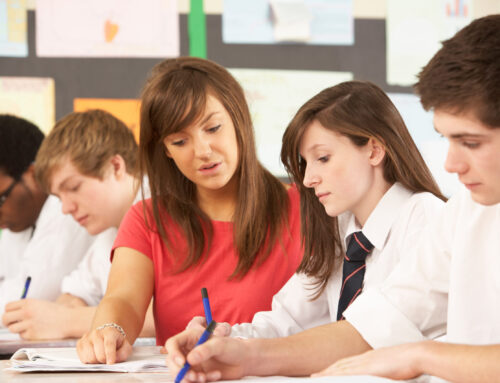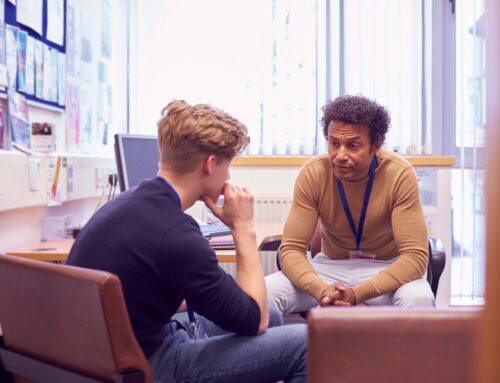As coronavirus cases grow globally, so do the number of school closures. Whilst a necessary action to stop the spread of disease, it could interfere with the final school term. What does that mean if you’ve got upcoming exams? How will you get the grades you need without your usual lessons? Will it put you behind students whose schools haven’t closed? To help you out, we’ve put together some tips to improve your revision skills and ensure that isolation doesn’t mean sacrificing your grades.

Create a plan
Before starting any revision, homework or extended reading, create a plan. Work out how long you have until your exams and how much time you need to go over each subject. It might be useful to establish which parts of the course you have already gone over in class, and which parts they are yet to teach you. This way, you can prioritise your revision.
Here are some useful tips to create an effective revision timetable:
- Get a diary, online calendar, or hand draw a dated chart so you can keep track of what to study. It also allows you to cross off tasks after each day, which can be very satisfying!
- Use colour: pick a colour for each subject. You could take this even further by assigning colours to study breaks, other commitments (e.g. football practise or walking the dog), and fun activities (e.g. games console or baking).
- Although revision is important, so is having down time. If you give yourself time off to relax, your revision will be more focused and effective, and will help to relieve stress. However, be careful not to let this take over – you can have all the fun and time off you want after you’ve completed your exams!
- And last of all, stick to your timetable!
Check the news
There is little understanding of the coronavirus so far, but new information and regulation is being announced each day. By checking the news once a day, either online, in the newspaper, or on the TV or radio, you’ll get an understanding of how long you will be off school, and whether any exams will be delayed. It will also be useful to check your school email and website for any updates and information.
Keep in touch
It is important to keep in touch with teachers and classmates to help your studies.
- Classmates: create social media groups and online chats with your classmates so you can share any useful revision aids you find. This could also help to motivate you to do work because it will, in a way, imitate the classroom environment.
- Teachers: email your teachers if you have any questions or aren’t sure about a certain subject so that they can help you. Ask them if they know of any useful websites, documentaries or podcasts you could be looking at to help you grasp the subject.
- Make sure not to let being online become unproductive and distract you from your studies. It is important to find a balance between getting the information you need and spending too much time chatting to friends or scrolling.
Forums
If your school has an online shared forum, it is very likely that there will be daily work posted on there by your teachers, which will follow your usual timetable and keep you up-to-date with what you would have been learning in the classroom.
Wash your hands
There’s no doubt you’ve already been told this a hundred times, but it is important. Washing your hands doesn’t only keep you safe but your loved ones too. It is important to wash your hands with soap and warm water for at least 20 seconds and dry them thoroughly.
Being at home all day may become boring, but it is important that you do not go to crowded places such as cinemas and shopping centres, especially if coronavirus cases have been confirmed near where you live. It might be tempting to hang out with your friends but you do not want to put them at risk or catch the virus from them, so it’s better if you can video-call them instead of meeting face-to-face.
If you need more information about staying safe, see the NHS website.
If in doubt, ask
If you’re unsure of what you should be doing whilst your school is closed, ask a parent or guardian and they can help you contact teachers, create a revision plan, and let you know if it safe to meet up with friends. You could also ask older siblings to help with subjects they might have studied when they were your age.
A lot is uncertain right now and advice is changing daily, but it is important that you do not let the coronavirus make you panic. Simply being off school means you and your family are safer and less likely of getting, or spreading, the virus. If you’re feeling anxious about the virus, talk to a friend, guardian or teacher. It is likely that talking it through with someone will help relieve stress. You might be worried that being away from school for too long will impact your grades, or even mean your exams are postponed. If you are worried that your revision isn’t up-to-scratch, or are struggling to do the right amount of work outside of the classroom, get in touch with a teacher you feel comfortable talking to and they will be able to reassure you.
Being off school is going to be a new experience, but it doesn’t need to be a negative one. Let it be a lesson in itself. Get to know what kind of learner you are, and which revision techniques work best for you. You’ll be able to use these skills for next years’ exams and throughout life. School closures might seem daunting, but you’ve got this.

Jessie Parker joined the team as Editorial Intern in 2020. After completing a degree in Creative Writing and Publishing, Jessie has recently had her creative non-fiction book published.





